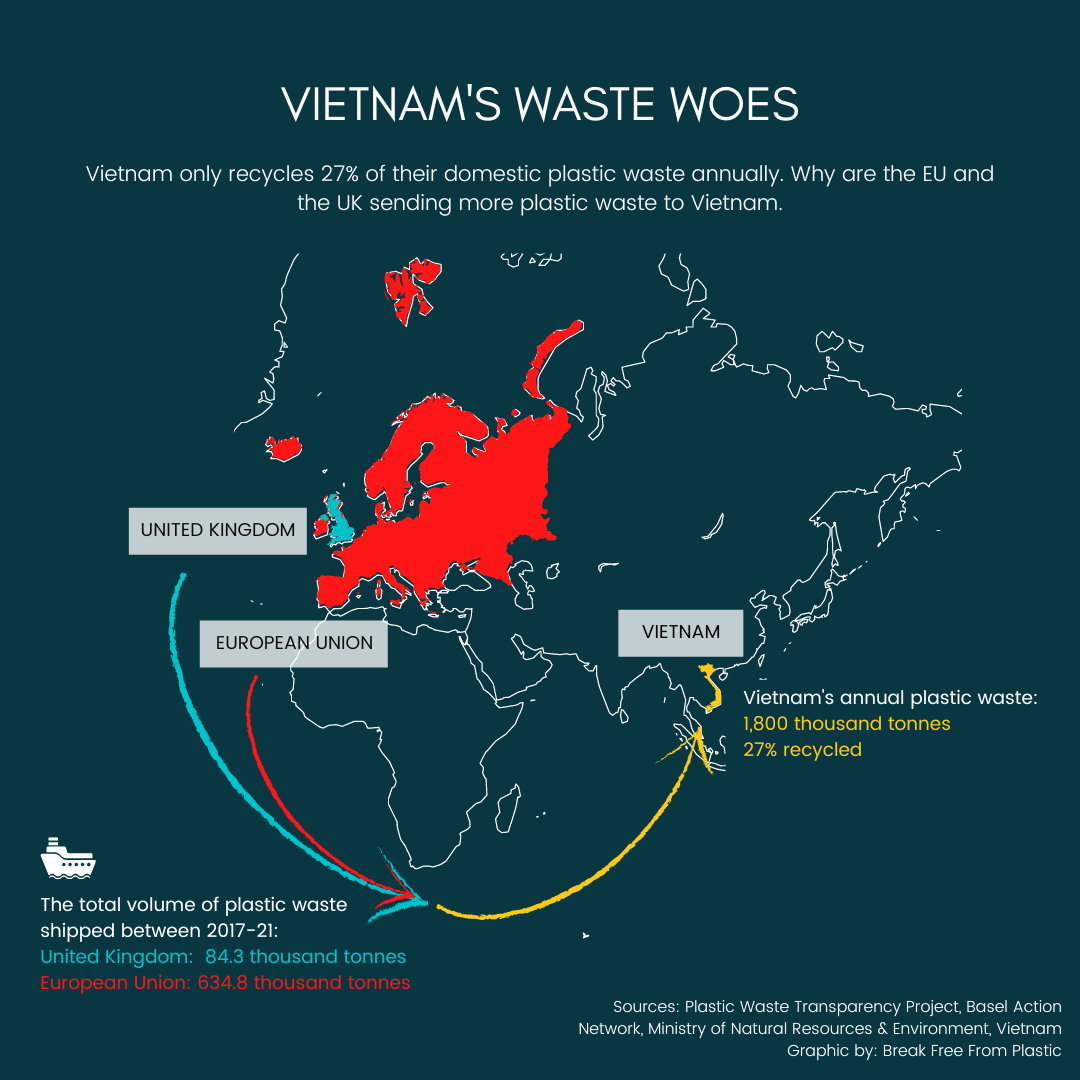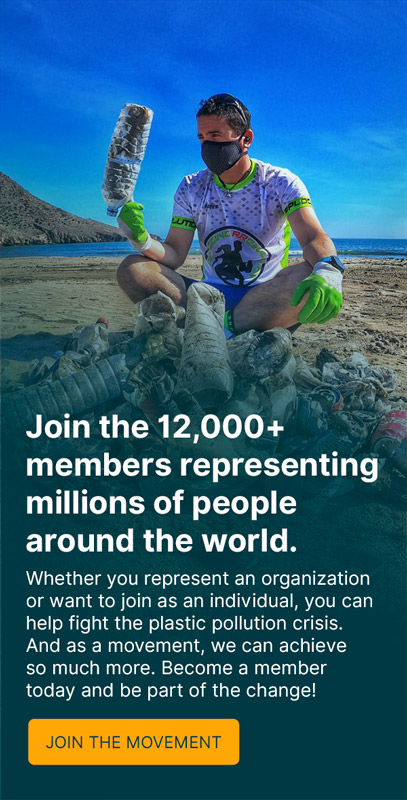In our last Waste Trade Bites, we highlighted how OECD countries* continue to send plastic waste to non-OECD countries. This means that richer countries are sending their waste to poorer countries. This month, we look into the waste trade between the second richest region in the world (EU-UK) and one recipient country – Vietnam.
While plastic pollution is a global environmental problem, Vietnam is among the most severely affected. A 2015 study listed Vietnam as the fourth highest country in the world for mismanaged plastic waste. Estimates indicated that the country generates 1,800 thousand tonnes of plastic waste annually, of which only 27% is recycled. The remaining plastic often ends up in the sea, rivers, and even the rice fields along the Mekong delta, where it is burned or buried because there are no viable recycling or disposal solutions.
Vietnam’s labour is largely engaged in agriculture, with rice paddy and fruits as the major sources of income, irrigated by the braiding channels of the Mekong river. Such an economy produces huge quantities of waste - the plastic containers for pesticides and fertilisers, as well as the toxic run-off from fields - both of which end up polluting the waterways.
As Vietnam struggles to find solutions to their own plastic waste, through hazardous waste collection centres and bans on burning, the United Kingdom and countries across the European Union continue to ship their contaminated plastic waste to Vietnam’s shores.
In the past five years, Vietnam received a whopping 634.8 thousand tonnes of plastic waste from the European Union, and a further 84.3 thousand tonnes from the United Kingdom. These were just officially reported figures. Despite the Basel Convention Plastic Waste Amendments which stipulated tighter regulation of the plastic waste trade, agents continue to exploit enforcement loopholes.
In November 2021, 10 NGOs including Basel Action Network (BAN) and Greenpeace received intel about a COSCO Pride ship that was to be loaded with 37 containers of plastic waste from Germany. Originally intended for Turkey (thwarted as the importer lost his license after a crackdown on mixed and dirty plastic imports by the Turkish government), this shipment was then redirected to Haiphong, Vietnam. The NGOs sent a warning letter to waste shipment authorities and representatives of COSCO Shipping at Piraeus, a Greek port, and were able to stop the shipment in transit.
But by then, 16 COSCO containers of German plastic waste, similarly rejected by Turkey, had already been sent to Haiphong. There were at least 80 more such containers believed to be stuck in Turkey involving the COSCO, Sealand, MSC, Maersk, and Hamburg Sud shipping lines.
This Germany-Turkey-Greece-Vietnam route only included plastic waste exports from one EU country. What is happening elsewhere? Concerted efforts by civil society organisations in the Asia-Pacific and the West have been effective in exposing illegality in the plastic waste trade and resulting pollution in destination countries. The roles of enforcement authorities and the private sector, such as shipping companies, are equally crucial in our fight against plastic pollution.

* The Organisation for Economic Co-operation and Development (OECD) is an intergovernmental economic organisation comprising 38 member countries, mostly who are high-income economies with high Human Development Index.


